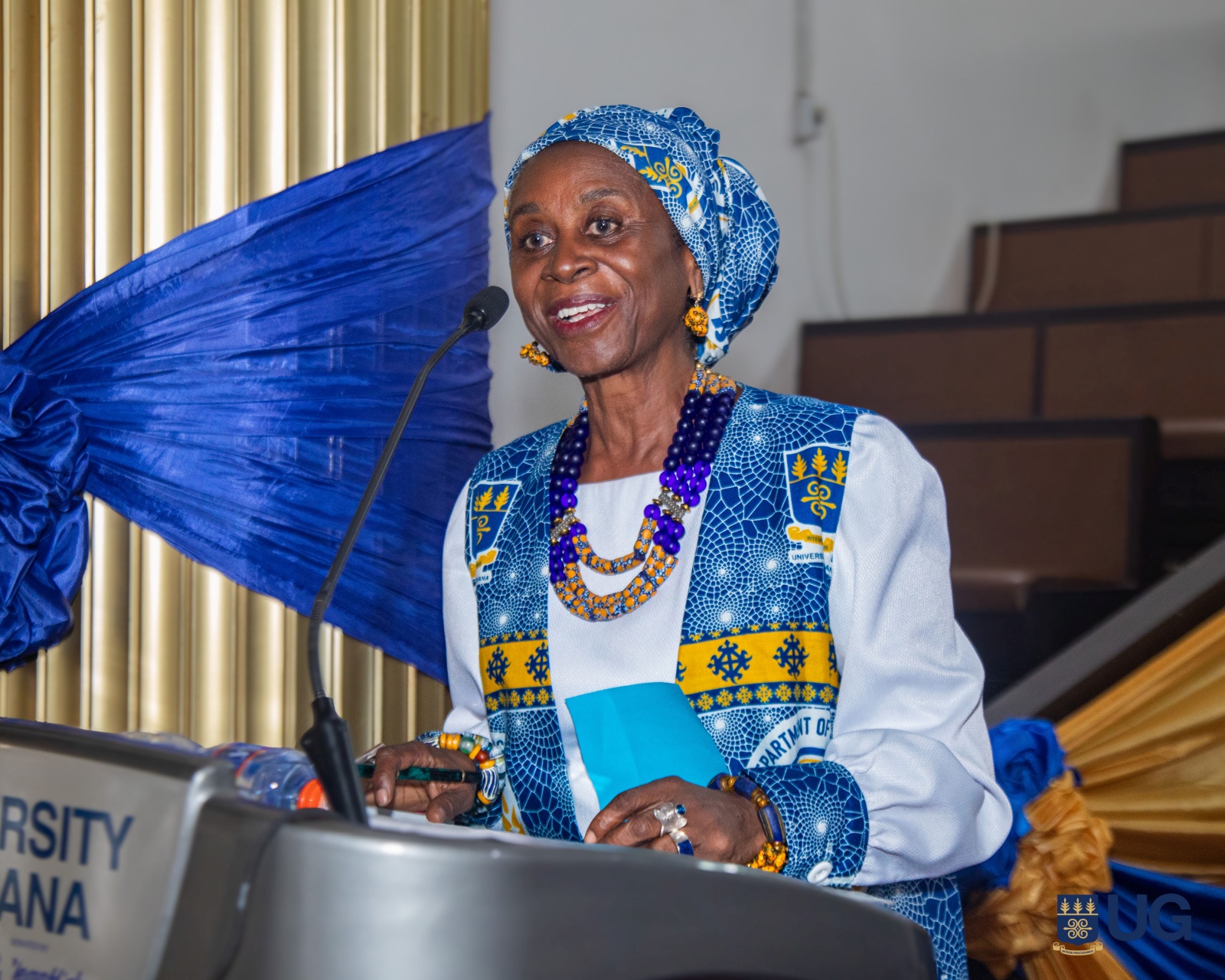“Sociologists Make Visible What We Take for Granted” - Prof. Abena P.A. Busia Reflects on 75 Years of Sociological Enquiry at UG

Daughter of Prof. K.A. Busia, a former Prime Minister of Ghana and founder of the Department of Sociology at the University of Ghana, H.E. Prof. Abena P.A. Busia, has emphasised the critical role of Sociology in unveiling the often-unnoticed structures that shape society.
She was speaking at the second in a series of lectures earmarked for the 75th anniversary celebrations of the Department, held at the University of Ghana. The lecture, titled “75 Years of Institutionalised Sociological Enquiry in Ghana: A Daughter’s Perspective,” offered an important reflection on the intellectual and historical legacy of the Department.
Currently a Professor of Literature and Gender Studies at Rutgers University, H.E. Prof. Busia delivered a lecture that wove together personal memory, scholarly insight and national history.
Drawing attention to the discipline’s power to decode the invisible frameworks of everyday life, she remarked that, “Sociologists make visible what most of us take for granted; they make us see the very structures we live in.”
Her reflections underscored the transformative nature of Sociology in helping citizens understand the norms, systems and values that quietly but powerfully shape human behaviour and social development.
The event opened with a short documentary chronicling the life and work of Prof. K.A. Busia, renowned sociologist, academic pioneer and Prime Minister of Ghana’s Second Republic (1969–1972). The film traced his instrumental role in establishing the Department of Sociology and shaping post-independence intellectual thought in Ghana.
The session concluded with the presentation of a commemorative plaque to H.E. Prof. Busia in appreciation of her scholarly contribution and her family’s enduring legacy within the Department.
The anniversary lecture forms part of a year-long series of commemorative and academic events marking 75 years since the founding of the Department, which continues to shape national discourse and train generations of scholars, practitioners, and policymakers.